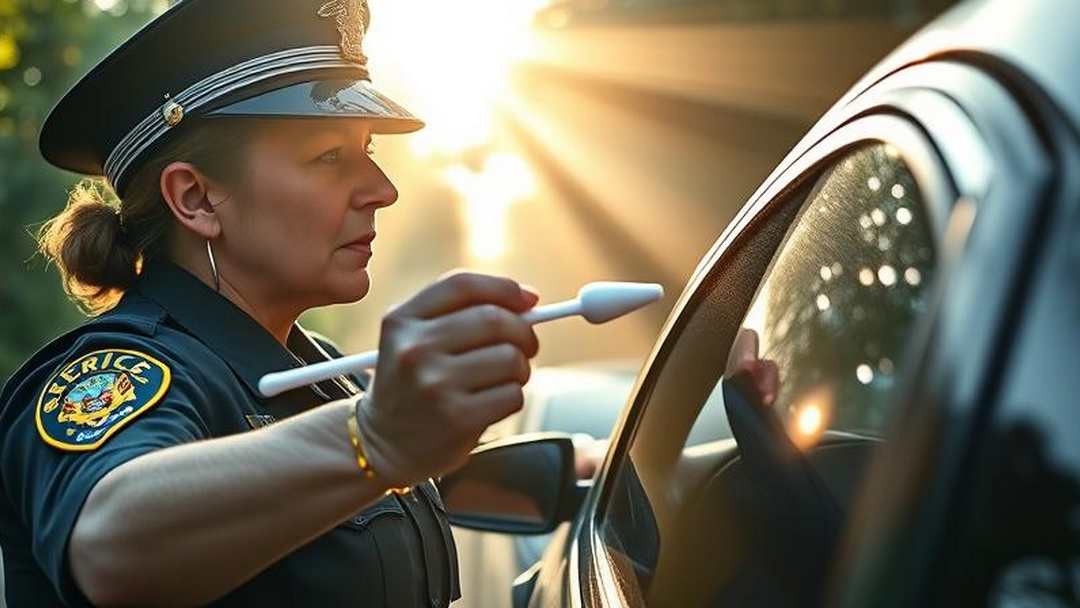Mere presence in a “high crime” area does not provide particularized suspicion of criminal activity for an investigatory detention.
People vs Prude
In People v Prude, Prude was in a parked vehicle at an apartment complex that was regularly patrolled by police because of frequent reports of crimes committed by non-residents. Prude was observed by an officer sitting alone during daylight hours, with the engine off, in an area of the parking lot where criminal activity was common. No one else was in the area, and there was no evidence Prude’s vehicle was parked illegally or describing how long he had been parked in that location.
I’m outta here
An officer approached Prude, asked for identification, and inquired whether he was a resident of the complex. Although Prude declined to identify himself, he answered that he was not a resident but that he stayed at the complex with his girlfriend who was a resident. A second officer then arrived, approached Prude’s vehicle, and upon recognizing Prude, provided his name to the first officer.
The first officer then advised Prude he needed to be with a resident while on the property before returning to his patrol vehicle to verify Prude’s tenant status through LEIN and to check the complex’s internal database to see if Prude had previously received a trespass warning from the complex. When asked, the second officer advised Prude he was being detained and that he was not free to leave. Prude then started the vehicle, rolled up his window, and drove away at a high rate of speed.
Komorn Law (248) 357-2550
Criminal Defense | DUI | Traffic Tickets | Business | Family Law
In it to win it
Prude was later arrested, charged, and eventually convicted by a jury of second degree fleeing and eluding under MCL 257.602a(4), and assaulting, resisting, or obstructing a police officer under MCL 750.81d(1). The Court of Appeals affirmed Prude’s convictions. Prude sought leave to appeal where he argued that because both offenses required the prosecution to prove beyond a reasonable doubt the police acted lawfully (see People v Chapo and People v Moreno), the prosecution presented insufficient evidence the officers lawfully detained him based on a reasonable suspicion he was trespassing. The Michigan Supreme Court granted leave and without any oral argument, reversed Prude’s convictions and remanded the case to the trial court to enter judgments of acquittal.
The article is continued here: Terry Stop and Refusal to Identify Yourself to Police
Source: Legal Update 157 Mich.gov
Just goes to show – when you fight there’s a chance you can win.
Better call Komorn (248) 357-2550
More Posts
Sometimes our posts provide a general overview of things with opinionated sarcasm and dry humor by the writer to lighten the same old same old of other law sites. It does not substitute for legal advice. Anyone charged with a criminal offense should consult an attorney for specific legal guidance. BTW. True Fact: When Michael Komorn fights the justice system there is only one focus. You and your rights.
Recent

Criminal Law FAQs – Probation Violations
Michigan Criminal Laws FAQs Theft CrimesAccording to Michigan State Law (Michigan Compiled Laws - MCL), a Probation Violation occurs when a person who has been sentenced to probation fails to comply with the terms and conditions of their probation order. These terms...

Michigan lawmakers want to revive “junk science” roadside drug testing
The Roadside Drug Test...AgainHouse bills 4390 and 4391The proposed House bills 4390 and 4391 would enable law enforcement to administer tests aimed at assessing driver impairment; however, these testing devices do not provide information regarding the level of...
Related
What is the Difference Between a Magistrate and a Judge
What's the difference between a Magistrate and a Judge in Michigan?In Michigan’s court system, both magistrates and judges play important roles, but they have different responsibilities and authority. Understanding the differences between the two can help you know...
Add on charges for your permanent record – Using a computer
The Use of Electronic Devices to Commit Crimes in Michigan Yes that means your cellphone... Computer" means any connected, directly interoperable or interactive device, equipment, or facility that uses a computer program or other instructions to perform specific...
Can You Be Charged for Using Your Phone During a Crime in Michigan?
Your breaking the law if you are using a cellphone while driving. On top of that if you're committing a crime and you use the phone... You're in for a prosecutor's extra round of office high fives.Can You Be Charged for Using Your Phone During a Crime in Michigan?...
Prohibited person possessing firearm
Thinking about going hunting? Not if you are a person who is prohibited from possessing a firearm in Michigan.In Michigan, certain individuals are legally prohibited from owning or possessing a firearm. Being caught with a firearm if you fall under this category can...
Unlawful Possession of a Controlled Substance in Michigan
Unlawful Possession of a Controlled Substance in MichiganIn Michigan, being caught with illegal drugs can lead to serious consequences. The state has strict laws on drug possession, and unlawful possession of a controlled substance is one of the most common charges....
Obstruction Laws in Michigan
Move along or you'll be arrested for Obstruction of "Justice".In Michigan, obstruction is a crime that involves interfering with law enforcement or other officials when they are trying to carry out their duties. Obstruction can cover a wide range of actions, including...


















